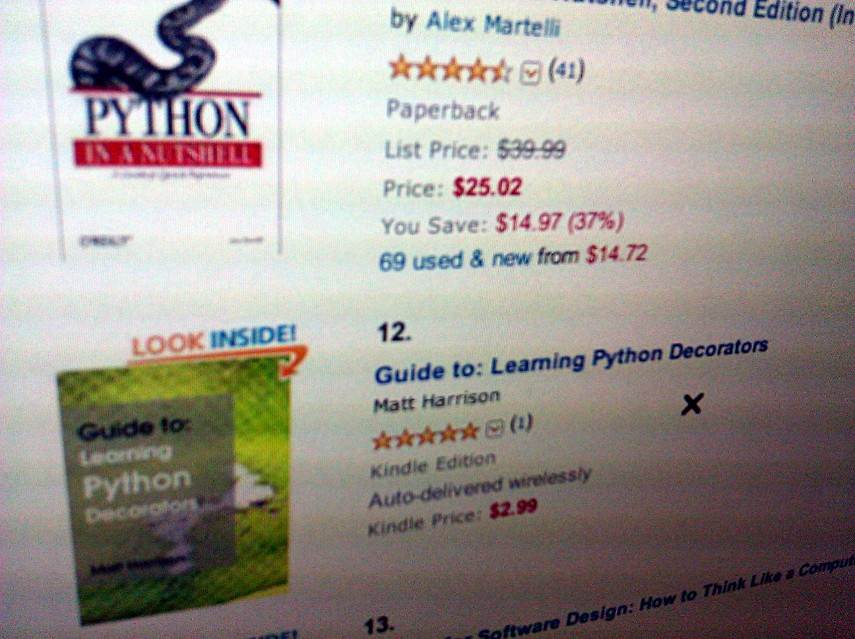
I am one week into the Amazon KDP non-fiction experiment with my books. Guide to: Learning Python Decorators is currently #12 on the Python list.
My sales have already outpaced any Barnes and Noble sales I've had. (Though I'm wondering how much reach Kobo would give me for the international market). What promotion have I done so far?
- A few tweets
- Wrote a (buggy) cheatsheet for Python decorators that got linked to Python section of reddit
- Updated buggy cheatsheet
- Got a wonderful review for my decorator book on Amazon. Thanks Richard! Money can't buy such nice reviews
From looking at my analytics, reddit gave me about 300 hits, twitter another 100 and google about 50. This resulted in 14 sales and 6 lends. Not bad.
Also looking through the list of non-fiction Python books, most are $30+. My decorator book is pretty short (a couple of chapters and priced at $2.99), but my Treading on Python book is about 140 pages. The way Amazon pricing structure works, I'm penalized if I price between $10 to $20 (above $9.99 and you are in the 30% royalty system rather than 70%). Perhaps this makes the shorter guide type books more reasonable and a "no-brainer" purchase. But I'm wondering if the lower price hurts with my longer non-fiction book? Do people equate price with quality or density of useful information?